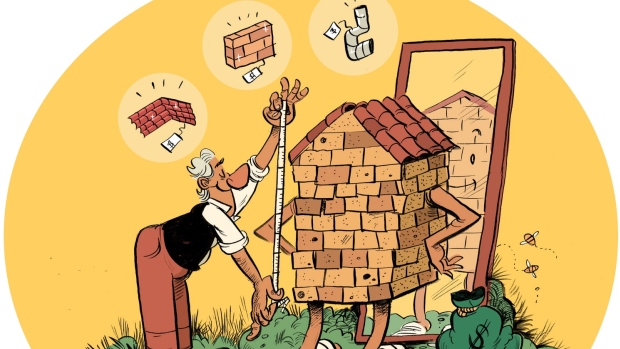Sep 23, 2020
MoneyTalk: Which cottage reno tax strategies should I consider?
Presented by:


Spending more time at the cottage or cabin? You may be thinking about ways you can improve it. Ian Lebane, a Tax and Estate Planner with TD Wealth offers tax strategies to consider to make the most of your investment.
For many Canadians, a cottage or cabin can be a real luxury, but perhaps particularly during this global pandemic. It can give us a place to self-isolate but also a sense of vacation and escape. But while we may be spending more time at our summer properties, you might also be noticing some things you’d love to improve, like an upgraded kitchen, deck or boathouse.
As well, economists say that we’ll have low-interest rates for quite some time, so if you have the funds or want to borrow money to upgrade, now may indeed be a good time. Whatever the improvements you make, whether it’s a sauna by the lake or a stone firepit to match your landscaping, you probably have an idea of how the improvements will increase the value of your property. However, before you call the contractor, here are a few ideas you may want to think about first.
Avoid high-interest debt when renovating
Although rates are low, avoid carrying more debt than you can manage. If you are carrying credit card debt or if you were planning to lean heavily on your credit cards to finance your improvements, it’s best to pay off this high-interest debt with a Home Equity Line of Credit (HELOC), which has a considerably lower interest rate. As well, even if we are optimistic about how the economy will recover, the pandemic situation is unique, and people shouldn’t extend themselves too much, especially if they think their source of income may be unstable.
Keep your receipts for tax purposes
I also highly recommend keeping track of receipts, large and small, on whatever improvements you make. For the purpose of minimizing a potentially future capital gains tax liability, your reno bills can be used to reduce the taxable gains when the summer home does change hands. Also, the CRA makes a distinction between upgrades, which improve the value of the property, and maintenance fixes which don’t. So adding a bathroom to the summer home where there wasn’t one before would be considered an upgrade, but fixing the dock after the old one rots away might not be.
Capital gains is something all cottagers should be familiar with. The capital gains tax comes into play whenever you sell an asset that has increased in value, whether it’s shares or real estate. Your principal residence is exempt from this tax so many Canadians will more commonly encounter a capital gains bill when they sell their second property — like a summer home — or when they pass it on to their children. This can be expensive because many summer homes have been owned for decades and have seen dramatic increases in their values, especially ones near larger urban areas.

COVID-19 Financial Relief
Where to find help
Consider this cottage capital gains strategy
Another reason to think about the capital gains tax now is because you may be able to time the renovations to coincide with passing the property on to the next generation. If you are undertaking renovations large enough to ultimately raise the market value of the property in excess of the actual reno costs, your estate will end up paying increased capital gains tax on your death. One strategy would be to pass the cottage on to the children now, while you are alive, pay the tax, then make the renovations. Theoretically, your estate will be spared the large tax bill. If, however, the renovations don’t add that much value to the property, it may make more sense to do the renovations before you pass on the property so the costs of them can alleviate your tax burden.
There are many other considerations concerning capital gains tax and how to pass the property onto your children but those are some ideas to think about.
Ian Lebane is a Tax and Estate Planner at TD Wealth with more than 30 years experience in the industry. At TD, he often assists in the creation of trusts, which can be a particularly valuable tool to provide for beneficiaries with special needs. Away from work he enjoys spending time at the cottage and on family trips with his wife and two sons.








